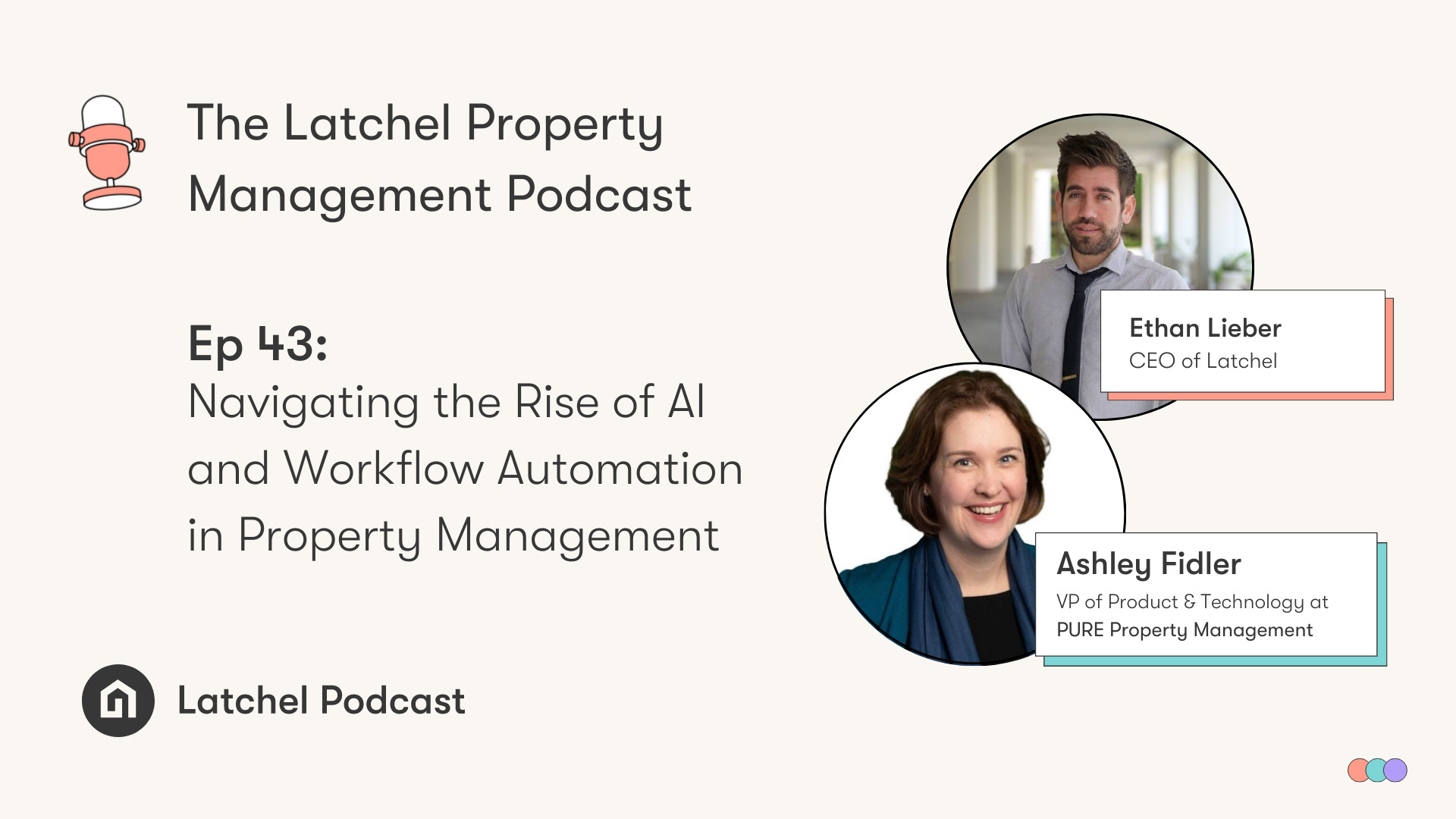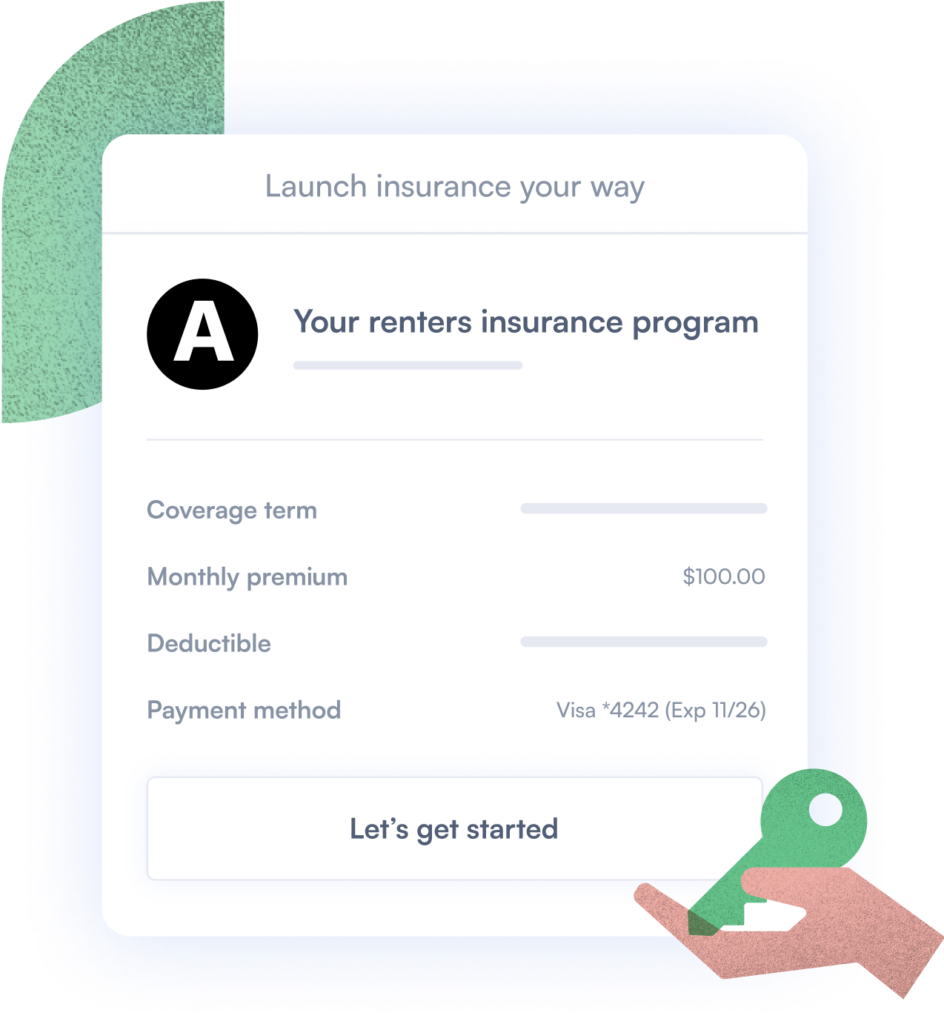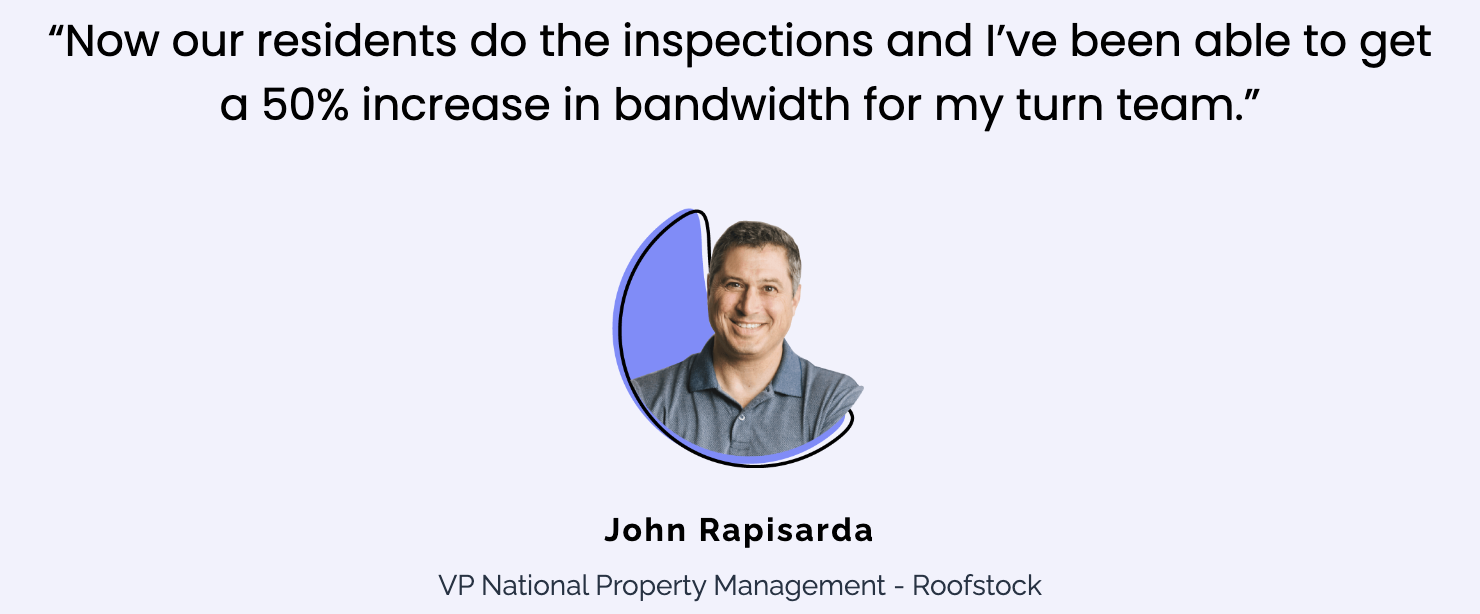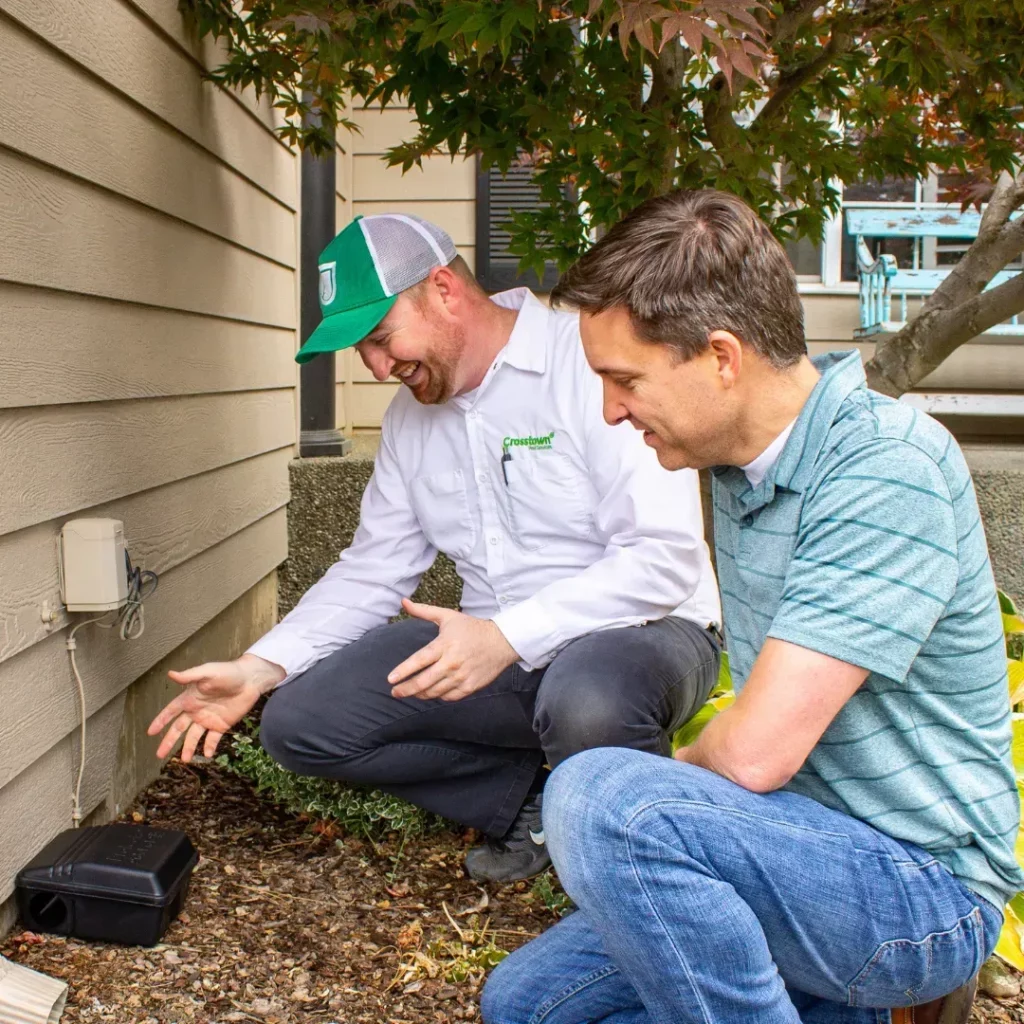With the recent surge of PropTech and innovative solutions making their way into the Property Management industry with greater and greater velocity, there’s been a lot to navigate through…
- How should and shouldn’t tech be utilized in such a relationship focused industry?
- How do you choose the right tech stack with increasing option overload?
- How can you get your systems syncing data?
- How do you best manage implementation and team buy in with process change?
- What can we learn from industries like Cyber Security and FinTech who’ve been here before?
There was no better to answer all these questions than Ashley Fidler, VP of Product and Technology at PURE Property Management who’s had a long career in building AI driven products in other industries that have had to navigate the same questions.
Tune in to hear her take and hear what PURE is focused on building for the future of Property Management.
Listen In:
Watch the Recording:
Read the Full Transcript:
Ethan:
Hey everybody, and welcome to this session of the Latchel Property Management podcast. I’m Ethan Lieber, the CEO of Latchel, host of your show today. And with me is our guest Ashley Fidler, the VP of product and technology at Pure Property Management. Ashley’s had a long career building high value B2B products that level up the customer experience in a wide variety of industries. Now she’s working to do that in property management, building a user focused platform at Pure. So we’re going to be talking about the adoption and utilization of technology, artificial intelligence, and how that all works in a relationship driven industry, like property management. Welcome to the show. Ashley.
Ashley:
Thanks for having me.
Ethan:
By the way, I should have checked before we started if I pronounced your last name correctly.
Ashley:
That’s correct. Yep.
Ethan:
All right, cool. So now people will be able to find you easily on LinkedIn. Well, before we dive in, I’d love to give listeners a little more insight into your background. So maybe you can start by telling us what was it that brought you out of industries like cyber security and IT, and into the property management industry?
Ashley:
Yeah. I started becoming familiar with property management a couple years back and I just find it really fascinating from a user and a data perspective. So, I’ve realized over the time I’ve been involved, that property management is really like everything a human can do with a building, which is pretty much everything you can think of. I just have a massive amount of respect for the property managers I’ve met and thought it would be a really interesting place to work from a technology perspective, because there’s just a lot of opportunity to make people’s lives easier.
Ethan:
I think the thing that impressed me when I got into the property management industry was, typically in startups in technology, when you’re launching things, you need a lot of grit to get over the hump. But property management’s the one place where that grit never goes away. There are just so many things you just got to be gritty and brute force it.
Ashley:
Yeah. It’s really interesting industry.
Ethan:
Yeah. I’m wondering if that kind of element of grittiness and figuring things out, does that ever make it more complicated to find technology solutions?
Ashley:
Yeah. One of the things I’ve noticed is just how many different products people use and how many … I think in our company at Pure, we have on average like seven to nine different products that all of our different property managers use. That’s just a lot, and knitting all of that together is highly complex. So yeah, it definitely makes the technology landscape more complicated than it might be in other industries. I think property management also just hasn’t had quite as long to mesh everything together. There’s been a trend in cybersecurity and in FinTech for the last, at least 10 years of really bringing all of these disparate products together in a unified way. That’s just now starting to happen in property management, which is why I think it feels a little more disparate here than it does in other industries.
Ethan:
Oh yeah. Thank God you finally have a lot of the big property management systems opening up APIs and things like that.
Ashley:
Yes. Definitely
Ethan:
Took long enough.
Ashley:
It’s a good trend.
Ethan:
Yeah, very good. So as the VP of product and tech at Pure, what are your main objectives for the business?
Ashley:
So at Pure, we’re a conglomeration of property management companies. So our job on the tech side is to make our people’s lives easier and to improve the customer service for our property management owners and residents across our portfolio. So, that means I spend a lot of time on what I like to call 20 minute problems. All the time during the day that our property management team loses 20 minutes because they don’t have the information they need, they can’t figure out or confirm if something did or didn’t happen. They have to copy something out of one system and put it in another system. I would estimate most of the people on our team lose hours every day, just with these things that they could be spending working to make a really valuable customer experience for owners and residents at Pure, and that’s what we want them to focus on.
Ethan:
Interesting. So is there … we’ll probably get more into this later, so maybe we just cover it a high level right now. But as sort of the specialist in product and technology, are there certain ways you bring that data and information together from these disparate systems?
Ashley:
Yeah. So that’s why, when we think about the tech we’re building, we talk more about platform and less about a product, because what we’re trying to do is use these open APIs that you’re talking about to connect together all of the different systems our people need to use and increase visibility. So we’re spending a lot of time on, for example, task management and communication that pulls from all of the different systems that we use internally and brings things together so that we can avoid the 20 minute problem of, I do an inspection, I print out my inspection report, I then go enter the data into my maintenance system. So we’re really focused on one stop shop and bringing everything that we need to use together.
Ethan:
Interesting. So if I’m a property manager and let’s say I’m talking with Pure about coming into that ecosystem, will I expect the technologies I use to change?
Ashley:
No, we want to let people use whatever they want to use. If you love your maintenance tool, if you love your inspection tool, fine. My background is in AI machine learning and enterprise platform development. So we’re building a FinTech platform basically for property management, a platform that brings together whatever solutions people want to use and make sure, under the hood, we’ve got data, machine learning, tooling, project management, communications that bring everything together. That’s really our focus.
Ethan:
Awesome.
Ashley:
So I think that’s something that a perspective we have at pure, that’s a little bit different from other companies in the industry, which why we’re focusing there, because we want to be an open ecosystem for people to come and work on our platform.
Ethan:
That’s awesome. I’m going to really want to dig into that piece later because there’s probably a lot of interesting places we could go with that. But before we do that, let’s kind of go a little bit more high level property management, fundamentally. It’s a relationship driven industry.
Ashley:
Of course.
Ethan:
I think because of that, you have this aversion oftentimes to technology. I think that’s changing, but it can still be complex and confusing. What technologies do you adopt? How much do you automate? How much you actually use artificial intelligence? I think a lot of folks make the kind of natural assumption that the more technology you use, the more it removes your ability to run a company in a relationship based kind of format. So maybe I’ll toss you the question. You tell me what you think here. How do you see technology used in a valuable way in the industry?
Ashley:
Yeah. I think that’s a common, I want to say maybe misperception or slightly differently perceived thing when you’re bringing technology into an industry that hasn’t had as much before. There were similar concerns in finance and cybersecurity. From my perspective, bringing technology in actually gives people time to focus on the things that they really want to focus on from a relationship point of view. So if you’re spending all your time copying and pasting things or dealing with friction with your technology, you don’t have that time to go provide amazing white glove service to your customers. I think, as there’s more tech in this industry, people are going to … the benefit property managers bring to the table is going to be that white glove service. There’s always going to be a number of people who just don’t want to self-serve. They do not want to manage their properties themselves.
Ashley:
Those people are always going to be there, and they’re going to expect a higher and higher bar of service as the technology gets better. Cause they’re going to go look at what they could do by themselves and say, well, I could do this myself. The technology’s there. It’s actually pretty easy to use, but I don’t want to. Since I’m not doing it myself, I expect the people who are serving me to be really concierge oriented. You don’t have time as a property manager to provide that concierge level of service if you’re spending all of your time fighting with your technology. So I don’t think, from my perspective, there’s anything inconsistent with using a lot of technology and still having a very relationship driven business. In fact, technology can give you more time for your relationships.
Ethan:
Yeah. Do you think who you’re building the relationship with matters? I guess really what I’m asking is I think property managers will … I think everyone’s going to understand that explanation and I think the next question’s going to be, well, if I’m spending time building the relationships, I see all these different services for the resident, but do I really want to be doing my own white glove experience with the residents? Or am I better served creating that white glove experience to the owner?
Ashley:
I think it’s going to depend a lot on each individual business and how you want to differentiate yourself. What makes you special as a property management company in the industry? If everybody has a certain high level of technology, there’s a certain baseline that will be there. Then if you want to differentiate yourself by really going all in on owner relationships or providing an amazing resident experience, that’s your choice. But there’ll be a baseline of technology that can provide a sort of expected level of service across the board and then you can go from there.
Ethan:
Yeah, that makes a lot of sense. Probably the next question that comes … yeah, that makes sense. I want to create time. I want to have that white glove service, but how do I ensure my technology doesn’t actually become an obstacle in delivering that?
Ashley:
Totally. I think that is a challenge that industry has today. At least I see that with the companies that we work with up here. I think they do a really admirable job, but there are definitely times when they’re fighting against that technology more than they’re working with it. I think at this moment in time, the best thing you can do is really make sure you understand your processes overall and how you’re differentiating yourself as a company and then choose the tech to meet that. I think sometimes we think about tech as some kind of silver bullet, like we’re going to get a new tool and it’s going to fix a bunch of problems for us.
Ashley:
Normally not. Tech is a tool. It’s just that. If you get a really amazing hammer, you can drill nails a bit faster, but at the end of the day, you still need to know what kind of building you’re building or what you’re doing with the hammer. Same thing with the business. So I think, as there’s more and more tech tools on the market, people need to take a bigger step back and think critically about their business, about their operations, about their processes and make sure they pick tech to serve them instead of just picking a tool and assuming it’s going to fix a bunch of problems, which probably won’t fix.
Ethan:
Do property managers have to become process experts to effectively leverage technology.
Ashley:
That’s a great question. If you’re going to operate at any kind of scale, probably you do.I think it’s all that scale. If you want to manage a small portfolio, fine. You don’t need a lot of process to do that. You can have a very small team and you can that on your own. If you want to manage a thousand or more properties, you’re going to have some processes.If you don’t have processes there, you’re going to have quite a lot of friction and a lot of duplicated effort and people running around getting in each other’s way. It’s not going to be a great experience for the people doing the work nor for the end users, the owners and the residents.
Ethan:
I think this is a maybe good jumping off point to our next question here. Cause you’ve talked about how pick the technologies that actually facilitate the process you’re creating. That’ll depend on your scale. So much VC money has been pouring in to prop tech and especially single family recently. So with a surge of all this new technology, I think there’s this element of option overload. It’s like, there’s a lot to pick from. Some of them all look the same. So how can there be 20 things that do the same thing? It can be confusing, but is there a mental framework you would suggest folks use when they’re building tech or choosing tech products on how to filter out noise and kind of pick what’s needed?
Ashley:
Yeah, that’s a good question. Definitely starting from the big picture, like how are you differentiating yourself? Are you all about resident experience, all about owner experience? What team do you have? Where are they? Who are they? What are their strengths and weaknesses? What overall are your operational goals? Do you want to make sure you can always play golf at 4:00 PM on like Thursday and Friday afternoons? What are your business objectives? Then I think you go and put your tech stack together to meet that objective. I think, yeah, we’ve seen this happen in FinTech and it happened in cyber security where, all of a sudden, just there’s this flood of products and everyone’s saying the same thing and you can’t really quite tell. I think as a consumer, you want to ask for a lot of evidence.
Ashley:
You want to ask who are you working with? What proof points do you have? Not just a couple, but what are you actually … how can you demonstrate that this is actually doing what you say it’s going to do? Think from the perspective of your business and then find some smart questions that would kind of show the gaps or show places where this might not work for you. If you understand what is really necessary to run your business, you’ll ask smart questions that’ll help you point out. Cause salespeople at the end of the day, they’re going to be like, it’s amazing. It’s going to fix all your … That’s their job.
Ethan:
Yeah.
Ashley:
That’s what they have to do. So it’s your job then to understand your business and to really have smart questions that help you suss out the differences between products.
Ethan:
Yeah, that’s a good point. I think we don’t see it enough from folks. They’ll latch on to the idea of the thing, like, Hey, here’s what this is meant to drive.
Ashley:
Everybody does that. It’s really normal already. It’s human nature.
Ethan:
It’s the human experience.
Ashley:
Yeah.
Ethan:
Yeah. Then on the flip side, what I’ve sometimes seen is when folks do kind of drill in, I think what sometimes is challenging is knowing no software, no technology’s perfect. Just like no tool is going to be perfect. There’s just no silver bullet, like you said. So how does a company distinguish kind of the must haves from I wish it didn’t work that way, but that shouldn’t stop me from getting with other values?
Ashley:
Yeah. What we do in product management in general is what we call journey mapping, user journey mapping. That’s basically like, what is it that we’re trying to do? Take the technology out of the equation. What problem are we solving? Who’s involved? What are we trying to accomplish? What goals do we have? Then you can think about the technology. What is the absolute bare minimum set of things required to do that journey that I just described? That’s your must haves.If you cannot do your job without something, then it’s a must have.
Ashley:
There’s a lot of other things that feel like maybe you can’t do your job without it. If you think about it in a slightly different way, you might be able to get away with it. So you want to, I think, boil it down to the absolute bare bones to start with. Just can I achieve the objective in some way with these features? That’s the must haves. Then how do I make that nice? Those are things I would like to have. Nice experience is not V1. V1 is just, it has to be there or I literally can’t do anything and there’s no work around. Then you can get into the, okay, how do I smooth things out? How do I make it prettier? How do I make things smoother? But first you’ve got to make sure the job that has to get done can get done.
Ethan:
Yeah. I’m going to throw out a hypothesis here that your answer made me think of. I want to get your take on this because I think that this can be a challenge for a lot of folks. The industry, has in a big way, I think built around the first technology players, like the PMS systems, right?
Ashley:
Yeah. You kind of said, there’s going to be things that don’t look like good solutions. But in fact, maybe what they require is just a shift in thinking, a shift in the mental model. But because these PMS systems, like Yardi, Folio, they’ve been around forever and the industry is sort of built around them, and there were inherent limitations to them that led to certain ways of running processes.
Ethan:
That’s true.
Ashley:
That may actually not be the right things to be doing, but they’re conventional. It’s what we’ve been doing. How do property managers figure out what are the ways we’ve always done it that aren’t the right ways to keep doing it now that we have these new technologies, versus does the technology support this old way of doing it?
Ashley:
Yeah. What I always recommend is just to take a step back and pretend you don’t have any technology. If you were starting from scratch today, what would your process be? Then layer in the technology. You might have to make some compromises along the way, because like you said, there’s no technology that’s perfect. Nothing is going to have all the features you want and it’s going to be perfectly smooth. That’s just not how the world works. But if you just take a step back and say, okay, just from ground zero, if I didn’t have any tech, what would I want my process to be, and then layer the tech on top, you’ll probably replace some things that you thought were the normal way to do it that it turns out it’s just not necessary to do it that way.
Ethan:
I think this is fantastic advice actually for every business, which connects to … well, I know this is how they talk about it in Amazon. Generally in product, it’s like the whole idea of first principles.
Ashley:
Yep.
Ethan:
It’s like, if you were going to do it all from scratch and you weren’t tethered, how would you do it to create the best customer experience?
Ashley:
Yep.
Ethan:
Or the most efficient operational process. It’s really hard to do.
Ashley:
For sure. It’s so hard. If you’ve been using a tool for a long time, it’s very, very hard to separate yourself from how that tool does things. Cause it’s just like, you’ve gotten so use … it’s like breathing. You just know intimately what is going to happen? You’re like, well I can’t do that because it’s going to cause all these problems. The property managers I know, know their tools so well.
Ethan:
Yeah.
Ashley:
So it’s hard to take that step back sometimes. But if you want to change, you got to do that. If you want to change, you got to go back to first principles.
Ethan:
Yeah. I think that’s also probably why we play in the resident amenity, resident benefit space, but I think that’s why it’s taken so long for a lot of the mid-market and single family property managers to start doing this, when big multifamily has been doing it forever. It just wasn’t conventional. But then it’s like, well, why not? Why can’t you do that? Why can’t we create higher margin, more profitable management companies? Do we have to be razor thin margin industry forever? Turns out the answer is no. We can actually be a higher margin industry and get nice [crosstalk 00:20:17].
Ashley:
It’s all about scale again. Yeah. The question of scale comes back again, because historically the tech was too expensive to run a small operation on. In the last five to 10 years, there’s been a massive explosion in just B2B, SAS kind of technologies and the quality and the kinds of things you can build, off the shelf, with off the shelf technologies. The kind of stuff that we build just in a quarter today used to take years. Even five or 10 years ago, it would take years to build some of that because the components weren’t there.
Ethan:
Yeah.
Ashley:
So that’s why this stuff is available to single family space that probably, 10 years ago, only the big banks can afford it and the big investors. Now it’s more accessible to people who are managing like 500 doors.
Ethan:
Yeah. So as all this stuff becomes more accessible and property managers look to change their tech stack, it brings up this whole other issue of the change management involved, adding a benefit package, adding a new software, adding a new workflow, doing more integrations. All this stuff requires a lot of work and process change.
Ashley:
Yeah.
Ethan:
I’m wondering, are there suggestions you’d give to property managers that maybe they’re actually excited by the consolidation happening in the industry and they want to tee up to maybe become a part of Pure, or maybe they’re already part of Pure and they’re just trying to enhance and improve that operation. Are there suggestions you’d give to these managers to avoid a poor implementation experience?
Ashley:
Yeah. Again, really knowing what you’re trying to do is critical. Beyond the technology, what goals do I have? What am I trying to accomplish? Where am I positioning my company? Knowing that is really, really important. Then in terms of change management, I would say making sure your team is on board and they understand what you’re trying to do is kind of rule number one with change management. Nobody likes to have things shove down their throats. At the end of the day, there’s a bit of a, going back to Amazon, disagree and commit moment where we’ve all talked about this and we’ve decided on this path. We might not all love it, but we’re going to commit to that and go forward.
Ashley:
But people can’t commit to something if they haven’t had a chance to discuss it. So I think, before you start with any implementation, really having those conversations, having people understand why you’re doing something, what does it mean, what impact might it have, and get people’s feedback. That helps a lot. Then implementation in general, I think a lot of it is around just communication and understanding, okay, I’m blocked by this. I can’t do my job because of this. I need help. Also, kind of going side by side. Don’t try to just say, here’s your new tool. Old one’s gone. Day one is today. You’re going to have an explosion if you do that, for sure.
Ashley:
So you’ve got to find a way to sort of run in parallel, give people training, give people a chance to get ramped up and then make the switch before you just … You got to think about business disruption. All the property managers I know have about 9,000 balls in the air at any given time. If you move like one thing, they’re going to fall and trip. It’s just too much to keep in … So you got to take that into consideration when you roll something out, that it’s a change for people and they need time to adjust.
Ethan:
Yeah. I’ve seen great success and horrible failure. The commonalities between those two sides I’ve seen is on the great success slide. That’s the success side, you’re typically rolling out and slowly increasing how you’re leveraging the technologies. For us, it might mean let’s roll out the amenity platform first. Now let’s ease into some of those maintenance automations over time. Then on the flip side, the thing that I just see as a catastrophe of failures, exactly what you said, we’ll get a broker owner that comes in, signs up, runs the onboard. They go live and we find out the day after go live that there was a maintenance coordinator or something like that, that no one ever said anything about, that’s then like, what the hell’s this thing? They have no idea how to use it. They’re confused why the company signed up. You’ve got to make sure everyone has context.
Ashley:
Totally. Yeah. It helps a lot. People, I don’t think are as change adverse as sometimes we say they are. It’s more just like nobody likes having things shut down their throat. People want to understand, they want to ask questions. That’s totally normal and everyone should have the opportunity to do that, I think.
Ethan:
I’d love to dig into how you’re working with the Pure offices.
Ashley:
Sure.
Ethan:
I’d like to start with the things you found working very well. Then maybe we can talk about the opposite, the things that maybe were tested, but didn’t quite work right. So yeah, we’ll start with that first one. Are there certain types of artificial intelligence you’re using in the offices or certain technologies and automation platforms that are working really well for folks?
Ashley:
Yeah. The big stuff we’ve focused on is visibility and removing some of those 20 minute problems I talked about. So how do we connect things together? How do we let people see … let the right hand see what the left hand is doing and make sure … One thing we learned, for example, is that a lot of people lose things in their email. Cause it’s like in Betty’s email and Paul needs it, and he doesn’t know that it’s in Betty’s email. So we’re integrating that into our platform so that they can see the Gmail is there and they can see some of each other’s emails. So those kinds of things are things that we found are really helpful.
Ethan:
Are you using an off the shelf product for that? Or have you home built something that makes it more visible?
Ashley:
We’re using Google and then plugging it into our just data platform.
Ethan:
Interesting. So if someone’s a Pure office, you’ve basically made it really easy for maybe one property manager to see something that might have accidentally or maybe worked by a different property manager at the company.
Ashley:
Yeah. So that’s the kind of problem we’re focusing on. The stuff we decided we really don’t want to focus on is like replacing all the tools people use. We don’t want to do that. people love whatever inspection tools are using, keep using it. You love your maintenance tool, great. You want to stay with your property management system, but you want us to add reporting and some other project management, fine. So we realize that, to the point on change management, there are a lot of moving parts in property management and we want to be like the sparklers in chief. We want to just bring everything together and make the overall experience really smooth and not try to replace every tool that people use because that’s just too much change and not necessary.
Ethan:
Yeah. Are there a couple 20 minute problems you’re currently looking at that you’d be able to share with us?
Ashley:
We’re really focused a lot on the task management one. So what we’ve noticed is a lot of our property managers use a totally separate project management tool that doesn’t integrate with their PM system. They all have to go to that tool, then go to their PM system and nothing goes together. But task management is really, really critical to what people do. So having task management to one side and email and communications to the other side means that the vast majority of things you’re doing aren’t in your platform.
Ethan:
Yeah.
Ashley:
So that’s kind of the problem we’re focused on fixing is just helping people get visibility and get everything in one place so that they can manage their daily workflow.
Ethan:
Do you think … this might be a weird question, and if this question’s too weird, just let me know and we’ll skip it. But is the long term vision that all these things get sort of embedded into the PMS, or is it a more powerful, long term vision to remove dependency on the PMS into a more flexible platform?
Ashley:
I think the notion of the PMS can change. It doesn’t have to be … Historically, in order for this stuff to work, it had to be this monolithic thing. I think we’re already seeing with a lot of the PM systems are already integrating a lot more. We’ve seen, even this year, AppFolio has announced a number of integrations with other products. So I think we’re starting to see that sort of less walled garden approach to what a PM system has to be. It doesn’t have to have every single thing in it and it doesn’t have to be closed. It can be an open ecosystem like we have in other industries and people can pick and choose the different pieces as long as you have one way to knit them together. So that’s the trend that seems quite likely in property management. It’s happened in other industries and it’s quite beneficial to users in the long term. It’s nice to be able to work in an ecosystem way instead of in a walled garden way. It’s better, because it gives you more flexibility.
Ethan:
Do you think the flexibility to build on top of an ecosystem like that’s going to be limited to folks that are part of this consolidation movement, like part of Pure. How would a company that’s not part of Pure access something like that?
Ashley:
Open APIs. Yeah. No, you can do it. We’ll build one. It’s pretty straightforward technology. It’s just a matter of knowing how to provide the developer tools and developer ecosystem that you need to make that happen.
Ethan:
But I guess then the question is can any property management company go afford to hire a software engineer?
Ashley:
Well, you don’t need … yeah, that’s a great point. So the end user property management companies aren’t going to need to build on top of an ecosystem. What they will benefit from is a wide variety of tools that they can use together seamlessly. Everybody talks about wanting Zapier integrated. The reason you want Zapier is to hook things together in a better way. So that process is what’s going to get easier. No, there’s no expectation that property managers are going to hire developers and go build using APIs. No, it’s more that people who are developers can build tools that more naturally work together for property managers to access.
Ethan:
But does Pure at a high level care about that? Well, I’m going to harken back to something you said early on about the data, which I interpreted as kind of data transparency and integrity.
Ashley:
Yeah.
Ethan:
To most property managers, the integration of tooling to get things done is probably what really matters.
Ashley:
Yeah.
Ethan:
But why does the data ecosystem matter to Pure?
Ashley:
Yeah, that’s a great question. I’ll say, why does the data ecosystem matter to people? Then I’ll talk about Pure. In general, there’s a lot of things that you don’t realize are actually data problems that are data problems. For example, if you want to … I’ll take a simple example. If you want to take something from your email and put it in your task manager list, that’s a data problem. If you want to take data out of your lease and put it into your property management system profile and then make maintenance tickets with it, that’s a data problem at the end of the day. It’s how your data is set up inside the system that restricts or enables you to do a lot of different things, especially cross-functionally. So historically most of the PM systems were built quite siloed.
Ashley:
Here’s all your leasing stuff. Here’s all your accounting stuff. Here’s all your maintenance stuff. Well, you can’t really … you can build a report to get some data that goes together, but you can’t really do anything with your leasing data in your maintenance system. That’s something that is a data problem that is fixable. To my mind, that kind of thing is what can really drive a lot of new user experiences that haven’t existed in the property management space. Why does Pure care? Mostly we care because we’re operating at scale and we want to do all these cool things for our people. We want to enable our property managers to do really awesome things and to get insights. We want them to be able to click a button and get profitability data to send to an owner, instead of having to dig through five different systems to find all of the things that they had to pay for, all the money they got in and then build a spreadsheet, make a dashboard and give it to them.
Ashley:
That can take days. You shouldn’t have to. If you have the data set up correctly, you can just click a button and do it. Those are the kinds of experiences that we also want to bring to other people in the property management industry, because we are inherently a very open company. We want to work with everybody in the industry and that kind of tooling, it only benefits all of us if we can kind of raise the general level of technology and help people provide experiences that just weren’t possible before that benefits the whole industry.
Ethan:
Yeah. That’s awesome. It almost sounds like you’re solving this really a kind of business logistics problem that’s kind of rooted in data. You talked about the old model being, you got all this data leasing and then you got accounting. Ultimately, this is maybe like kind of the Amazon influence talk coming through here. By the way, I should have asked early on, because you mentioned disagree and commit. Are you ex Amazon or?
Ashley:
No, it’s just a common framework in the tech industry. No, my background is I have a PhD in linguistics and I went and worked in natural language at Microsoft. So I worked on Xbox and Quartana, and then I got into FinTech from there and have been at startups for the last 10 years or so.
Ethan:
Awesome.
Ashley:
Yeah. I think that is a very common framework and disagree and commit is a very useful … it says everybody has to have a say, but then you all get together and you do a thing, even if you don’t agree, because you can’t have people pulling in different directions. I think that was articulated very well by Amazon.
Ethan:
Yeah. Yeah. They have a pretty powerful leadership framework. Did you work with Microsoft in their Seattle office or Bellevue headquarters?
Ashley:
Yeah, I worked at the Microsoft labs in San Francisco or in Palo Alto and then I also worked in the Bellevue office in Seattle.
Ethan:
Very cool. I’m in Seattle right now in the downtown WeWork. So I have a lot of friends that work at Xbox.
Ashley:
Yeah. I lived in Seattle for four years.
Ethan:
Well, it’s good you got out, getting more sunshine it looks like wherever you are now.
Ashley:
Yeah. Colorado now.
Ethan:
In Colorado. Cool. So yeah, I guess where I was going with that was you can kind of break down a lot of these things almost into a supply chain or logistics metaphor where you think about the rental unit. Let’s just take leasing, for example. The lease moves across almost this supply chain up to the move in, which turns into the entire accounting piece, and these things all flow together. To your point, when you build these systems that silo them, you invariably just create a ton of manual work that has to happen.
Ashley:
Yep.
Ethan:
Which isn’t really necessary.
Ashley:
Yep.
Ethan:
Which I think kind of goes back to something we were talking about earlier of when can you use technology? Well, technology is great for removing manual work that’s simply there to facilitate the movement of things like data.
Ashley:
Yep. Yeah, definitely.
Ethan:
I do have to ask, since you have such an impressive background in natural language processing and AI and machine learning. Is Pure using you sing that type of AI anywhere?
Ashley:
So I very, very strongly believe until you’re doing something manually well, you should not apply machine learning or AI to it. So machine learning and AI is all about pattern finding and making predictions based on patterns and data. Until you’re generating data and doing things in a way that’s manual, adding the complexity of a machine learning system, which is much more complex technology, just doesn’t benefit you. Not everybody believes that, but I’ve definitely worked on enough companies that have tried to just go straight to machine learning without really being able to do it manually. You always have to go back and make sure you can do it manually first, and then you can improve it by making things more flexible by doing predictions, by understanding things better.
Ashley:
But until you got the data flowing and the manual process is running, you shouldn’t do it. So we’re still at that process of really getting all the benefit we can out of Pure automation. And then once we have gotten to that point, we’ll obviously definitely use machine learning. We’re set up for it now, but I don’t want to introduce that kind of complexity into my world until we need it.
Ethan:
Yeah. So this is an interesting topic we can just spend a couple minutes on because Latchel is not truly machine learning based like artificial intelligence. Latchel works based off decision trees.
Ashley:
Yeah, exactly.
Ethan:
And workflow triggers.
Ashley:
Right, which works great. That’s a very powerful technology.
Ethan:
Works great, super powerful, automate a whole bunch. It is simple. It’s not really like AI as I think about AI. When I think of AI, I think of what you’re talking about, the machine learning things where literally actions being taken, not off decision trees, but off of probability models behind inputs.
Ashley:
Right.
Ethan:
Now, even in my position, leading a company, running workflow automations, it is really hard for me to see how you take something as complex as maintenance and actually create useful machine learning models. Yet at the same time, I do see companies focusing on maintenance and leasing that are attempting to leverage AI and machine learning. My question to you is, is that real? Or do they just have a whole bunch of humans in the background faking the AI? And two, how feasible is it to build machine learning on top of maintenance decision making?
Ashley:
The main thing … so I don’t know if it’s real or not. I’m not going to comment. I don’t know what companies you’re talking about, so we’ll leave that aside. But in general, the way it’s feasible is you break the problem down. Eventually you can optimize with machine learning, the whole process of maintenance. For example, if you focus on decisions that people make in helping them predicatively make a better decision by giving them the data they need and saying, okay, and then learning from the decisions that they do make, you can do that. But for example, there’s a bunch of individual problems and maintenance you could solve.
Ashley:
For example, predictive maintenance. If you understand the brands of appliances and different things about appliances or things about roofs, you can actually build a fairly simple model that would help you say, okay, what are my top 10 roofs that are about to collapse? I’m just making that up, but properties that need predictive maintenance. So predictive maintenance is a whole field that usually they use in industry. So for industrial equipment and things like that, but there’s absolutely no reason that kind of algorithm and model couldn’t be applied to predicting appliances or other pieces of homes that might need predictive attention before it actually fails.
Ashley:
You can take pieces like that, or you can, for example, support prioritization. You could help people say we would predict that you should do your tests in this order, but then you do it in a different order. Well, then we can learn and start to help you prioritize your list automatically in a better way. So there’s pieces that you can do that don’t require you to use AI to make a maintenance robot or something. Maybe could do that someday, but you don’t have to start there certainly.
Ethan:
Yeah. I love the example you gave, because I imagine when you start at very large institutional property managers, let’s say with hundreds of thousands of homes, it actually makes a lot of sense to use this type of AI to not only predict cost, but to also be able to look into, well, what are actually the top performing appliances that we could equip to reduce maintenance costs and things over time. I think it gets a little bit trickier when you look at third party management that’s fragmented because an individual owner, that individual, if they’re a DIY with one or two units, what’s the benefit to them of optimizing for the 1% chance that this appliance outlives the other? But in aggregate, there’s a lot of value. I’m wondering how you think about that.
Ashley:
Well, you’re not at that point necessarily doing it for the owner, as much as for yourself. You’re trying to get your people out of being on fire all the time. If you can help your people solve fires before they become fires, then … I don’t know if you’ve ever … There’s an old book called The Goal, which is about basically factory automation, but the main insight of that book, it’s 20 some, 30 years old. I don’t know, but the really interesting insight is, by expediting things, you actually slow your overall process down. If you get into a situation where you always have a fire and you’re always expediting something, then your actual assembly line end to end is broken. It actually runs way slower and everybody gets things slower. Then things have to be put on fire more.
Ashley:
Property management’s not dissimilar. We just kind of wait until there’s a fire and then we fix it. But then you get into this situation where you’re always behind trying to catch up and people are always calling you being like, I have all these problems. So if you can even take 10% of that away, 20% of that away where you’re being able to fix that stuff before it goes wrong, that’s a huge win for your team. It has not necessarily benefit individual owners, but it does in the sense that they’re going to have less grumpy tenants who stay longer. So, that’s how I would think about it.
Ethan:
That’s an incredible way to frame it. I also love the manufacturing analogy. Is it called an [inaudible 00:43:34] cord, which is like the whole concept of, can we stop the manufacturing line to actually fix the problem.
Ashley:
Yep.
Ethan:
So that it’s not getting worse and worse and worse, right?
Ashley:
Yep. Yeah. So just keeping ahead of things and getting into a culture where you’re able to start being proactive. That’s massive benefit.
Ethan:
So we’re coming up. We only have a couple questions left here. So I’m going to ask the big one and then we’ll start ramping down. What does the future of property management look like?
Ashley:
Obviously, no one can really answer that, but I think if you look to other industries, there have already been other industries, many other industries that have gone through consolidation, that have gone through big tech explosions where there’s tons of new products, and then have gone to kind of more open ecosystem models. I think that’s the path that property management seems to be on also, which is … Honestly, it’s a bit rough in the middle when all these new products come on and people are like, what do I do with all this stuff? Do I even need any of this? But over time, as it consolidates, it really does help choice in the industry and just smooths out processes and helps people streamline. So I think that’s kind of the path that property management seems to be on, which I think has been a successful path in other industries.
Ethan:
I think you’ve literally just shined the light into this dark cave that’s confusing for me to see through on the future property management, or we’ll call it a tunnel because light at the end of it. But I never made this connection until you just made that comment from the previous answer you gave about this sort of aggregation of data to use intelligently to do predictive maintenance and all this stuff with this kind of future of using more technology. I think the thing we didn’t say, that I think has to be true, is that it’s the management companies that are going to have access to all of these robust sort of AI and machine learning technologies just simply by virtue of scale. A DIY landlord will never be using these things, and what that fundamentally means … Well, they might use like automation technologies or-
Ashley:
Yeah, some things, but the professional companies will be ahead because they’re at the bigger scale
Ethan:
Because the professional companies are head from this scale, what we’ll actually find is, in aggregate, the benefit on cost, reliability becomes massively better for professional managers than the DIYs. It already is from a residence perspective, but I think one of the gaps is a lot of accidental landlords, DIY landlords, even some institutional that self manage, the gap from their own benefit on net operating income doesn’t feel like it’s there. But if as professional managers we can start making better decisions around what products to actually put in place in the home, the types of things to do, the preventative maintenance, the resource planning, all this sudden your net operating income as a property owner becomes astronomically better if you use a professional manager, even if you’re paying them eight to 10% of rent. So it does seem like in this future, when technology’s leveraged to a better degree, that you also grow the property management market. The third party market grows.
Ashley:
Definitely can do.
Ethan:
Yeah. It’d be awesome to fast forward to see if 80% of rentals are professionally managed in the future versus 30%.
Ashley:
Yeah. If you can make your money back, if you can pay your 10% and then get 15% more revenue, it’s a no brainer. Why wouldn’t you use a professional management company?
Ethan:
Yeah. Yeah, exactly. Okay, last question before we go into wrap up here. Are there any trends you’re seeing in the industry that property managers listening should make sure they’re tuned into?
Ashley:
No, I think we’ve covered on a lot of the major ones. I think making sure you’re picking an ecosystem that’s open, you’re not locking yourself into technology where your data’s going to be trapped, because that’ll make it harder for you to switch in the future, and really just go take a look at all the new technology that’s out there. This is a beautiful, almost Cambrian explosion period of technology in this space. So take it with an open mind and go and take a look and see what’s out there. Then use that as kind of fodder for yourself to go think about your business and what all the possibilities are for you. Then you can make smarter decisions about how to use tech in your business.
Ethan:
Awesome. I love that. I think at this point, Ashley, folks are … they’ve got burning questions. They’re wondering what does NLP mean? They’re wondering, should I be teeing myself up to join Pure? This sounds incredible. They’re going to want to talk to you. So where should listeners go to connect with you and learn more about you?
Ashley:
I’m not too much on social media, but I do use LinkedIn quite a bit, so I’m quite easy to find there. Yeah, feel free to reach out anytime.
Ethan:
Awesome. Well, you heard it from Ashley. Hit her up on LinkedIn. Her name is Ashley Fidler, F-I-D-L-E-R. Go say hi, go connect. She’ll tell you all about Pure and all the good AI things happening. Well, Ashley, thank you so much for joining. Super deep conversation. I’m sure some things folks are going to have to go Google. I know I’m walking away with a couple terms and a book at least that I’m going to have to go find on Google from you. So thank you so much.
Ashley:
Thank you. It’s been great.
Ethan:
For everyone listening, thank you for tuning in. If you’re interested in more topics on property management, growth and scalability, head over to Latchel.com. Subscribe to our newsletter and stay up to date on upcoming podcasts, webinars, tactics for growth, all kinds of good things. Thanks everyone. Thanks Ashley.













